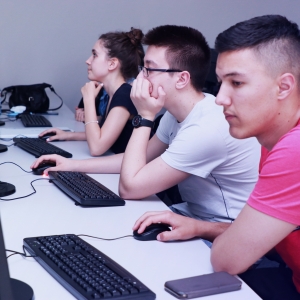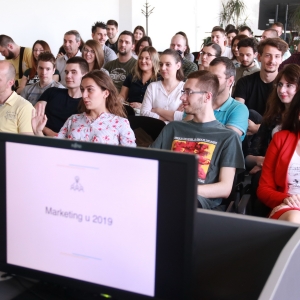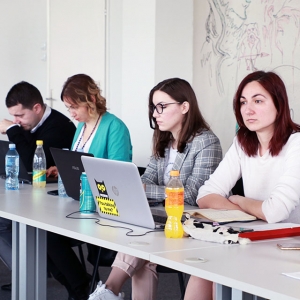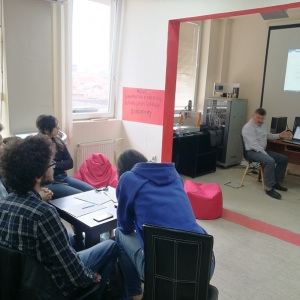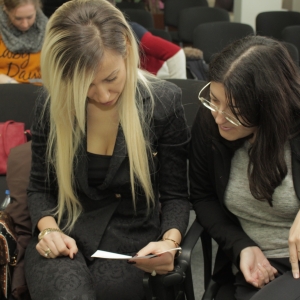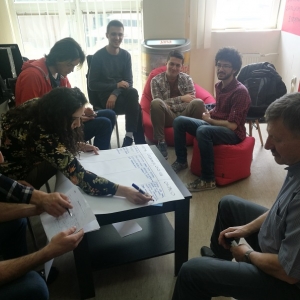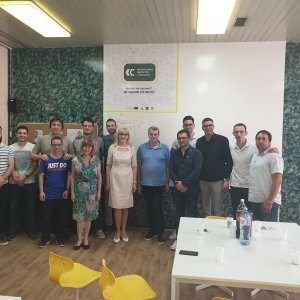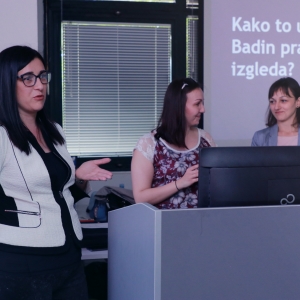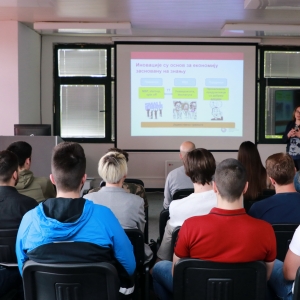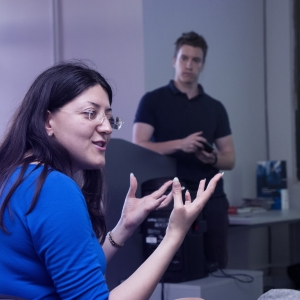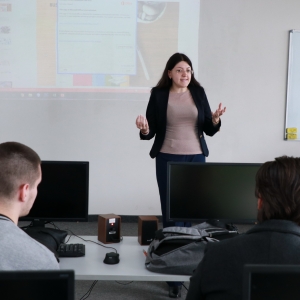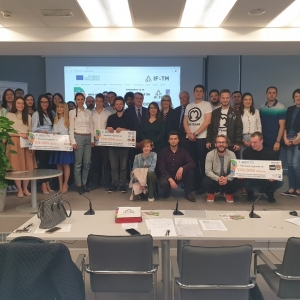EU members
Home / CONSORTIUM MEMBERS / EU members
University of Brighton (UoB), Brighton, United Kingdom, (www.brighton.ac.uk). The University of Brighton is a community of over 23,000 students and 2,600 staff based on five campuses in the South-East of England in Brighton, Eastbourne and Hastings. It has one of the best teaching quality ratings in the UK and a strong research record, factors which contribute to their reputation as a leading post-1992 university.
The university has cemented productive partnerships with the public service and local authorities, with business and industry, and with academic institutions regionally and internationally.
It is strongly committed to professional formation and to civic engagement, seeking to meet new challenges, especially of lifelong learning, of social inclusion, and of knowledge exchange in an information-rich age.
University of Brighton also has key strengths in cooperating with businesses, in vocational education and training, technology transfer and innovation, all of which contribute to the local region.Danube University Krems (DUK), Krems, Austria, (www.donau-uni.ac.at). Universitaet Fuer Weiterbildung Krems DUK is Europe’s only state-run university for postgraduate education. It combines high quality in education, research and consulting with customer orientation and service. More than 8500 students from 70 countries are enrolled in over 300 master programmes. DUK is the largest provider of postgraduate education in Austria and one of the leading competence centres for academic continuing education in Europe. The Department for Continuing Education Research and Educational Management combines applied research, postgraduate studies and consultancy work. The department’s activities are directed towards professionalizing HE management, implementing professional teaching and training and preparing institutions for processes of lifelong learning. Within the department the Centre for Educational Management and Higher Education Development is providing training for educational managers and is involved in a number of international projects in the field of higher education management and development. The major focus is on institutional development, indicators and measures as well as change management.
![]() Instituto Superior Técnico (IST), Lisboa, Portugal, (www.tecnico.ulisboa.pt). Since its creation in 1911, Instituto Superior Técnico is the largest and most reputed school of Engineering, Science and Technology and Architecture in Portugal. IST aims to give its students and alumni the education and the knowledge tools to improve, to change and to shape society through science, technology, and entrepreneurship. IST provides top quality higher education, strongly exposed to Research, Development and Innovation (RD&I) activities, immersing its students in an exciting and global environment geared towards solving the challenges of the XXIst Century.
Instituto Superior Técnico (IST), Lisboa, Portugal, (www.tecnico.ulisboa.pt). Since its creation in 1911, Instituto Superior Técnico is the largest and most reputed school of Engineering, Science and Technology and Architecture in Portugal. IST aims to give its students and alumni the education and the knowledge tools to improve, to change and to shape society through science, technology, and entrepreneurship. IST provides top quality higher education, strongly exposed to Research, Development and Innovation (RD&I) activities, immersing its students in an exciting and global environment geared towards solving the challenges of the XXIst Century.
The importance that IST gives to entrepreneurship and industry relations is reflected in the current organizational structure, with the appointment of a management board member responsible for these issues. Technology transfer is also one of the three pillars of the IST strategic plan, along with education and research. The 2009 restructuring has also created the IST Technology Transfer office (TT@IST), the department responsible for the contracting, protection, management and exploitation of IST intellectual property. This office also acts as the IST contact point for companies and has the responsibility of promoting entrepreneurship among students, researchers and teaching staff. TT@IST is composed of two departments: The Corporate Partnerships Department and the Intellectual Property Department.
 University of Maribor (UM), Maribor, Slovenia, (www.um.si). The University of Maribor strives to provide the very highest quality of undergraduate, postgraduate and professional education. It will remain one of the leading academic institutions in Slovenia contributing to world quality research in the arts and the sciences.
University of Maribor (UM), Maribor, Slovenia, (www.um.si). The University of Maribor strives to provide the very highest quality of undergraduate, postgraduate and professional education. It will remain one of the leading academic institutions in Slovenia contributing to world quality research in the arts and the sciences.
The University of Maribor is a broad-based institution committed to excellence in education, the extension of knowledge through basic, advanced and applied world-quality research as well as creative and artistic expression. With its complement of Arts and Sciences, Law, Business, Engineering, Medicine and Pedagogy, the University promotes cooperation, competition and multi-disciplinarity.
The University strives to provide equal opportunity for higher education to students and embraces as its core values both freedom of thought and expression and freedom from discrimination. The University is committed to the highest standards of academic honesty and integrity. Internationalisation plays an important role; the University encourages student and staff mobility and active participation in international associations, networks and projects, and at the same time promotes and protects Slovenian language, national identity, heritage and culture.

The University of Bari Aldo Moro (UNIBA), Bari, Italy, (www.uniba.it). The University of Bari Aldo Moro is a public body, founded in October 1924 with approximately 60.000 students. The university offers various courses for undergraduate, graduate and post-graduate students. The University is presently constituted by 24 Departments covering all fields of research from basic to R&D.
The Departments have a long tradition of studies, using advanced technologies and a multidisciplinary approach to research. The University has participated and has been granted numerous National ( PON, Reti di Laboratori, PRIN, FIRB) and International research projects ( FP7 cooperation and people), educational projects (Erasmus Mundus, TEMPUS IV, LLP - Leonardo and Jean Monnet) and Cooperation Programmes – IPA, Interreg IIIA Italy-Greece, ENPI-MED).
A joint master degree in International Business and Economic Cooperation has been established.
Currently, the University has 6 ongoing Marie-Curie projects (FLEXSMELL; IONTRAC; IT-LIVER; SENSE-OF-CARE; ORGBIO; NR-NET). Of major importance is the international activity, scientific relations are promoted by numerous cultural collaboration agreements with other European and American Universities as well as an important agreement with some Chinese Universities.
Latest news
Awards ceremony for the winning student teams within the Open Innovation Campaign
(12.06.2019)Interactive Workshop "Video Game Development in Unity Platform - Ruby’s Adventure 2D RPG Project" at the Creative Center of Metropolitan University in Niš
(11.06.2019)Visiting Lecture "How to Position Products & Services on the Market Using Digital Marketing" at the Creative Center of Metropolitan University in Niš
(07.06.2019)The National Final Competition for best student idea for 2019
(03.06.2019)Visiting Lecture "Experience & Challenges in Practical Application of Agile Methodologies & Scrum" at the Creative Center of Metropolitan University in Niš
(31.05.2019)


